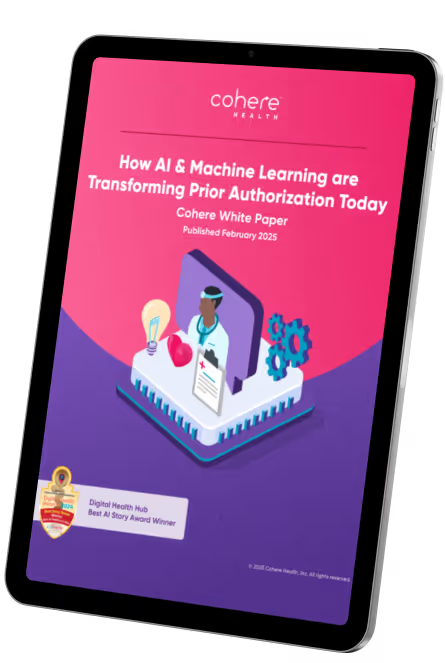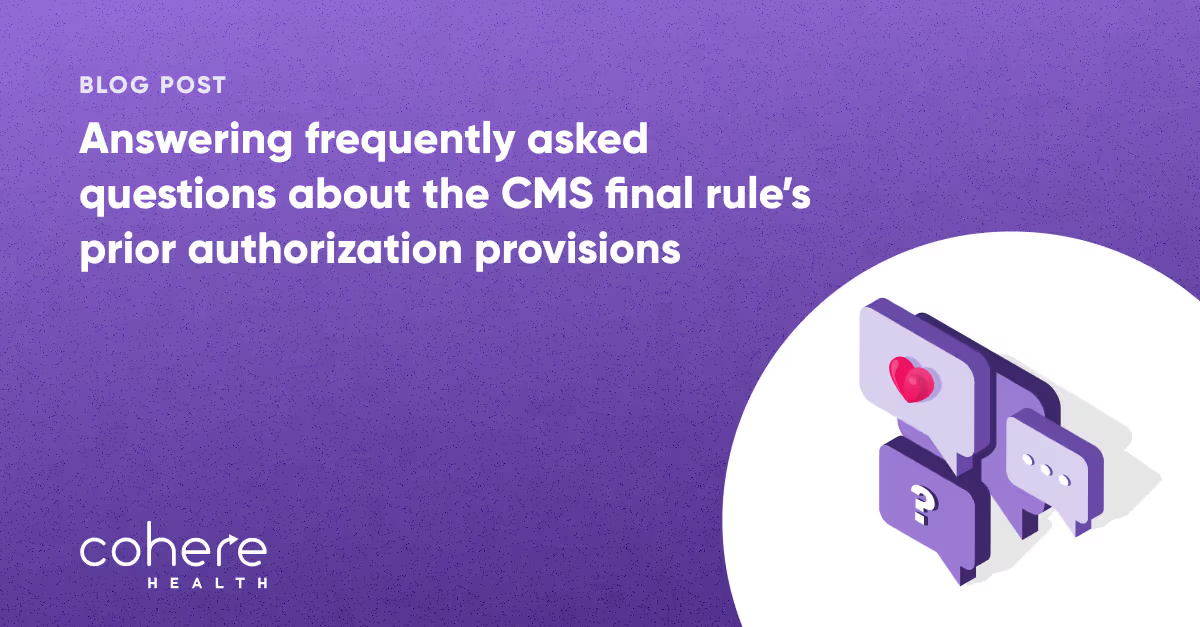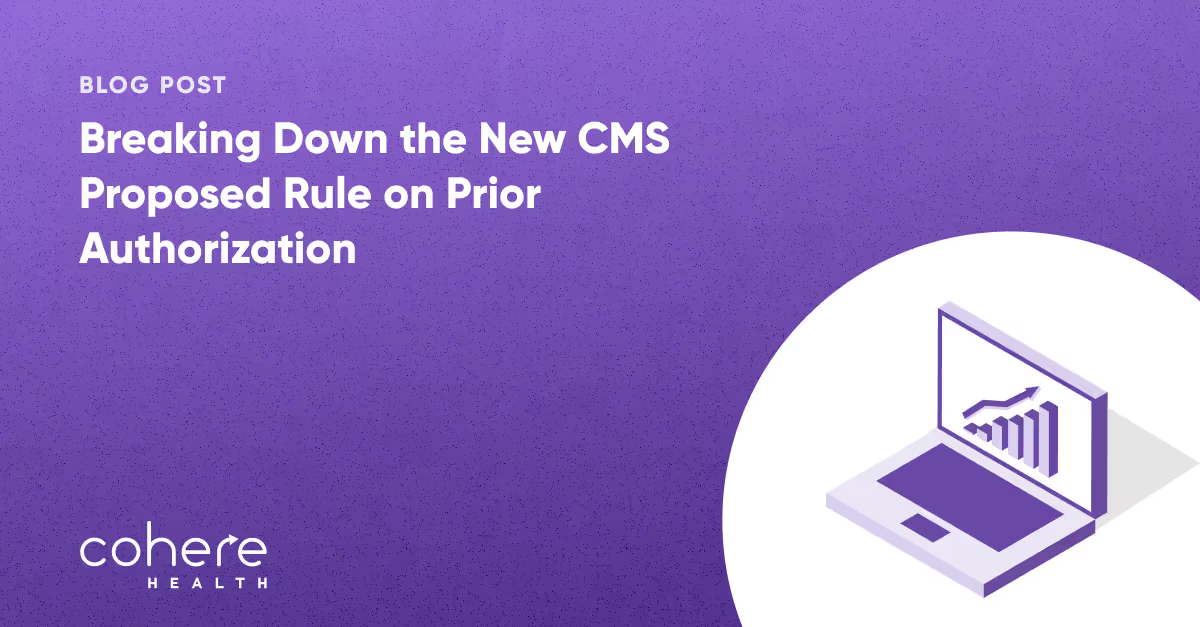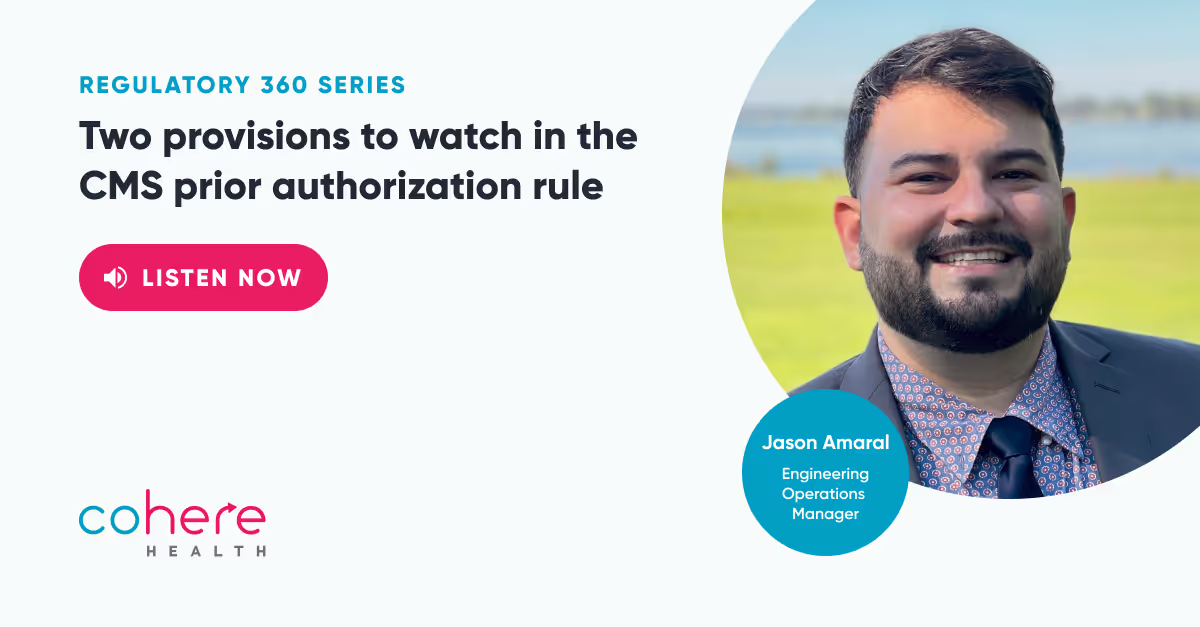6 Questions to Kickstart Your CMS Prior Authorization Rule Compliance Conversations
Published:
April 25, 2023
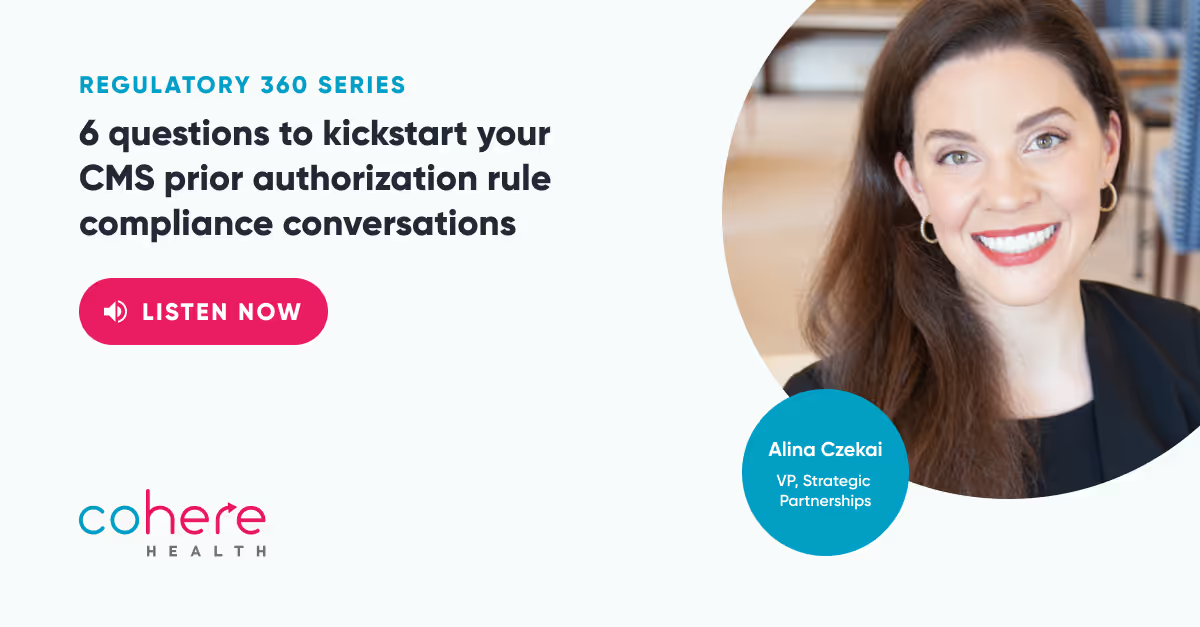
Now is the time to develop your CMS prior authorization rule compliance plan:
Here’s how to start the conversation
These six questions guide a discussion inclusive of the four specific prior authorization provisions in CMS-0057-P, targeting interoperability, turnaround time, transparency, and accountability.
1. What percentage of our prior authorization list (PAL) lends itself to automated decisioning?
With newly required shortened turnaround times for expedited and standard requests as a part of the CMS proposed rule, it’s essential for plans to implement automated decisioning. Health plans can prevent gamification of clinical assessment questions and ensure that requests for routine services are being decisioned accurately by applying intelligent prior authorization.
By leveraging patient clinical and administrative data, intelligent prior authorization uses artificial intelligence and machine learning to deliver instantaneous decisions for 80% of authorization requests.
2. How are we sharing prior authorization requirements and necessary documentation guidelines to collaborate with provider partners in approving optimal care for patients?
It isn’t just digital decisioning that can make an impact on prior authorization, especially when it comes to transparency. Since 70% of healthcare practices still exchange medical information by fax, there is a huge opportunity for health plans to drive impact by creating two-way communication around prior authorization requirements and decisioning.
The best way to do this is by digitizing prior authorization intake across all channels. Adopting a provider portal where providers can instantly find whether a service requires a prior authorization or are notified of a prior authorization determination can reduce provider burden. Authorizations submitted via traditional channels, like fax, can be digitized to enable decisioning along with digital requests.
Implementation of an EHR-integrated prior authorization solution can make intake invisible, automatically mining and attaching required documentation for prior authorizations from the patient’s medical record.
3. Is it clear to providers why their requests have been denied, allowing for an easy appeal if due to missing information?
According to a recent study by the Kaiser Family Foundation (KFF), the vast majority (82%) of appealed prior authorizations were fully or partially overturned. Why not get to the right answer before going through all the wasted time, expense, and headache of denials, appeals, and reversals?
By improving transparency around requirements and addressing missing information before requests are submitted, intelligent prior authorization solutions like Cohere Unify™ can:
- reduce provider abrasion
- ensure nurse reviewers are working at the top of their licenses
- deliver more instantaneous prior authorization decisions

4. How do we measure provider performance relative to prior authorization?
Collecting and reporting on provider performance is an essential part of improving the prior authorization process. Reporting quality metrics in healthcare drives improvement in quality of care, especially when reporting on provider and healthcare organization performance.
Cohere Health delivers quarterly scorecards to health plans, providing an opportunity for them to review their performance and discuss improvement tactics with their provider partners to collaborate on delivering better care.
5. How might alternatives like green lighting alleviate roadblocks we’ve encountered while implementing gold carding?
Legacy prior authorization solutions treat all providers the same. However, new state-level legislation has been trending toward the implementation of gold carding, which allows providers with a 90% approval record to bypass prior authorization requirements for qualifying services.
Unfortunately, a recent AHIP study found that 73% of health plans with gold carding programs reported some negative outcomes, including administratively difficult implementation. Since intelligent prior authorization solutions already collect provider- and healthcare organization-level performance data, they are better equipped to comply with gold carding regulations effectively.
Taking it a step further, Cohere’s alternative, green lighting, can reduce provider abrasion for high value providers in the same way, without turning off the process for those providers.
6. Could implementing an intelligent prior authorization solution help us comply to new regulations like the proposed CMS rule?
Cohere’s platform already meets–and in most cases, exceeds–the forthcoming requirements proposed by CMS. Intelligent prior authorization is a strategic lever for better payer-provider collaboration, interoperability, transparency, and patient care.
Check out Cohere Health’s Compliance Academy for more multimedia resources to help your plan strategize for upcoming regulatory changes.
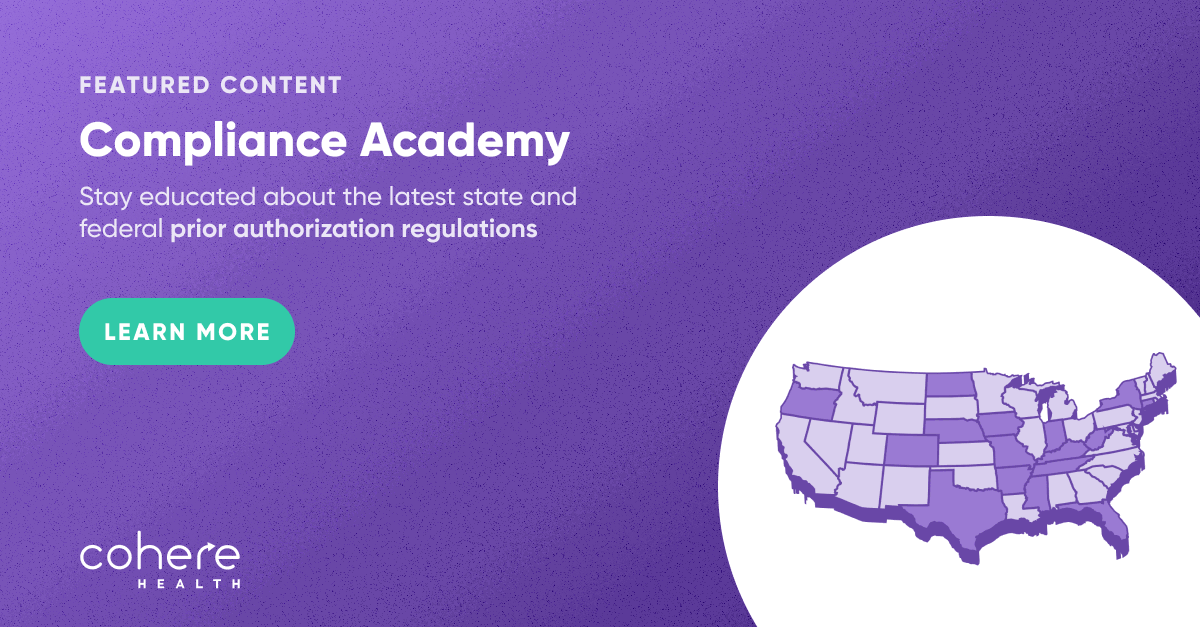
Available For Download
Stay ahead with expert insights on transforming utilization management and payment integrity—delivered straight to your inbox.

